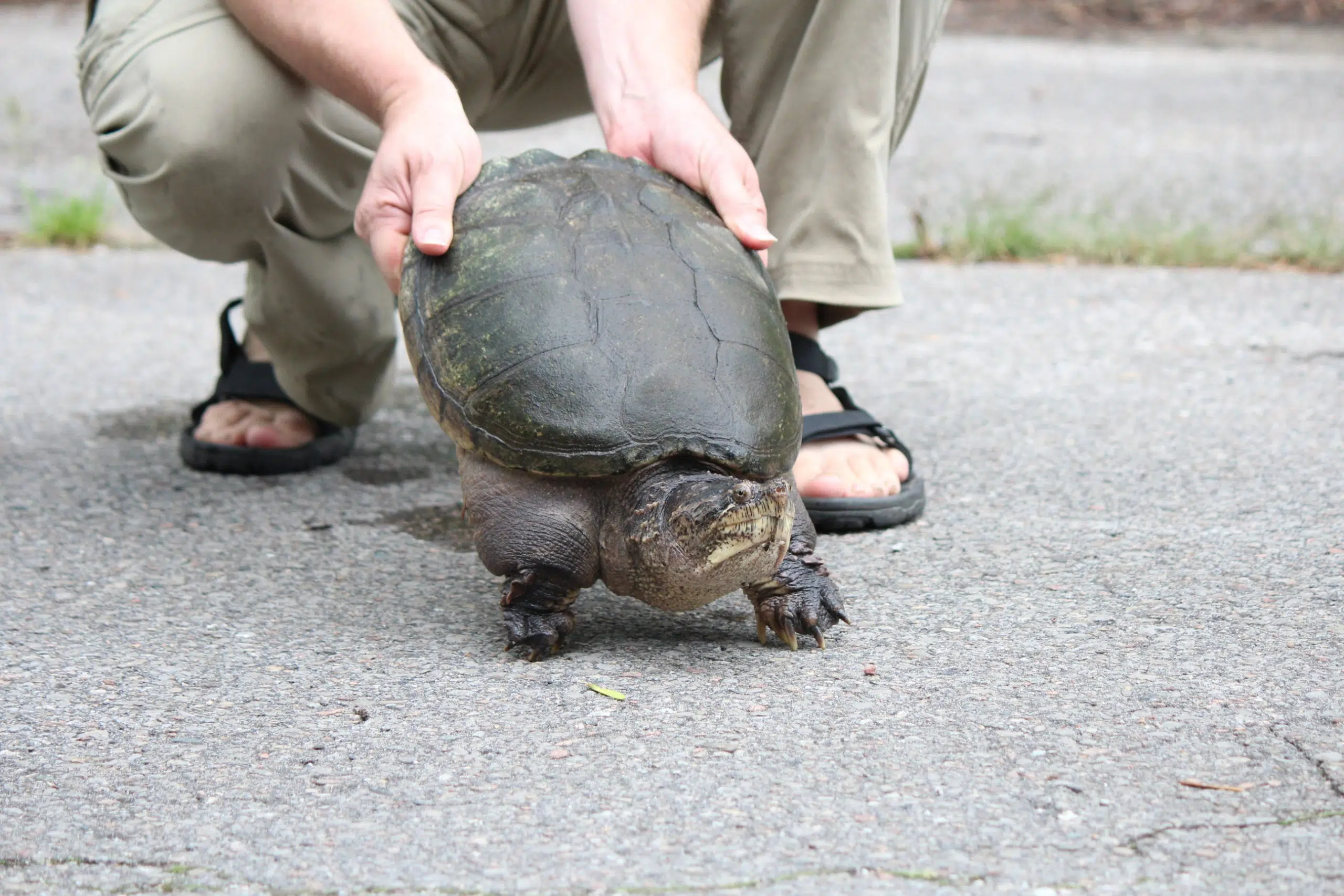
The Nature Conservancy of Canada is asking you to give turtles a brake-as in slowing down when you see them trying to cross the road.
National Media Relations Director for the Nature Conservancy of Canada Andrew Holland says turtles are visible from May to October, emerging to find mates and lay eggs, and they play an important role in the human world.
“Turtles are very important because they clean our water sources by eating dead plants and animals, so they are doing a lot of our grunt work cleaning,” he said.
Turtles are endangered and threatened in many areas of Nova Scotia including the Blanding’s Turtle which is endangered, the Wood Turtle which is threatened and the Snapping Turtle and Eastern Painted Turtle which are of special concern, so helping them can really make a difference.
Holland says turtles can take up to 20 years to mature to the point of laying eggs so every time one is crushed by a car it hurts turtle populations for a long time to come.
“We have the opportunity to preserve the turtles we have, when a car strikes an adult turtle and kills it that’s a lot of development and maturity gone. Not every turtle egg yields a turtle so it’s important we do everything we can to help them,” he said.
Holland urges people to stop if safe to do so and help turtles across the road.
“You can use a car mat and slide the turtle across the road in the direction they were going, believe it or not turtles don’t just go out for a walk, they have a destination in mind.”
Holland says for most turtles picking them up and holding them like a hamburger is sufficient to move them safely, but Snapping turtles can be a bit tricky.
“They can be very aggressive so using a wheelbarrow technique is best. You grasp the edge of their shell near their back feet and lift so their front feet are still on the ground, and they will walk along until you get them across the road safely.”
He says if you do come across a turtle that has been run over but is still alive, call an animal rescue organization like Hope For Wildlife in Head of Chezzetcook to assist.
You can contact Hope For Wildlife here.






